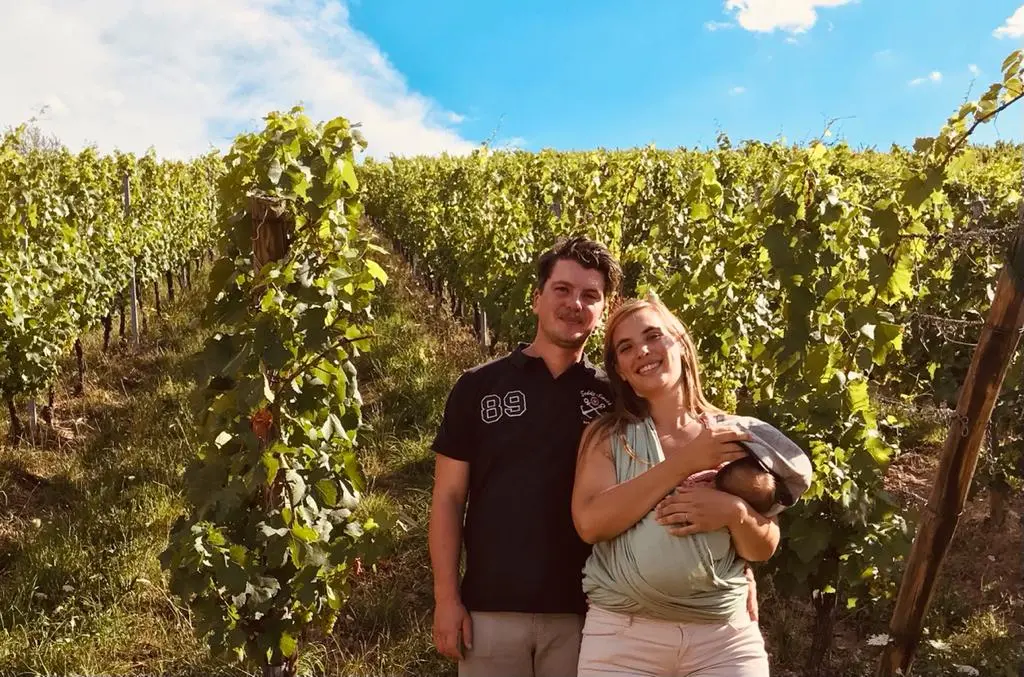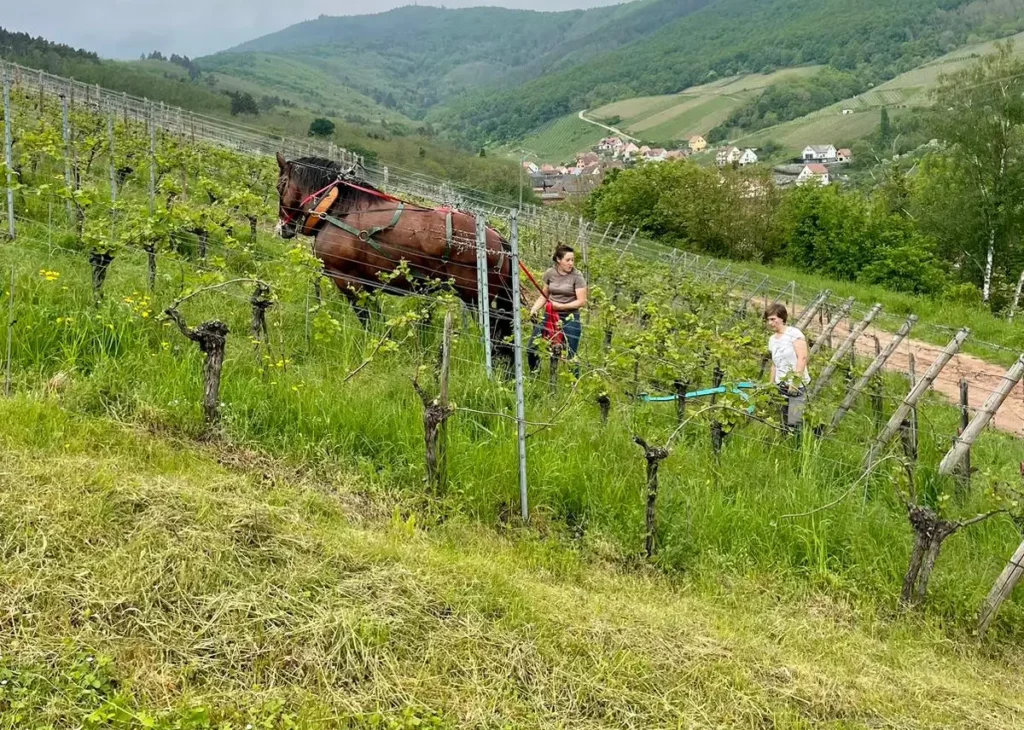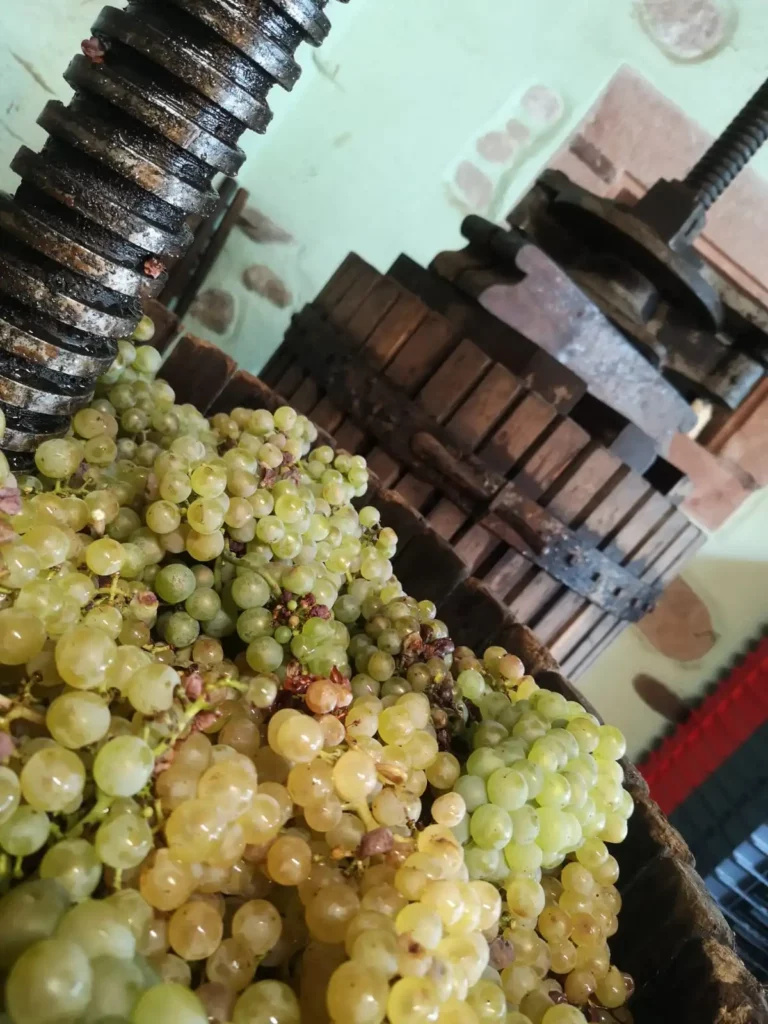Les Enfants Terribles, a story of sharing and love.
Our story.
We are a small Alsace-based trade company, established in 2020 by two people from Champagne, Sarah and Jean. We vinify the equivalent of one hectare on various terroirs of the Alsace vineyard. As great lovers of saline and mineral wines, our hunting grounds for our grape purchases are granite, sandstone, shale, and volcanic soils.


Close Collaboration with Organic and Biodynamic Winemakers.
We work with winemaker friends whose work in the vineyards we know well and who practice organic or biodynamic farming. We choose the harvest dates ourselves and in most cases, do the harvesting. Sarah works some parcels with our draft horse, Fastoche.
Our aim is to run a high-quality trade business, placing great importance on the winemakers from whom we buy the grapes.
Passionate About Natural Wine.
In the cellar, all our winemaking processes are natural: slow pressing in a ratchet press, no sulfites, no filtration, no yeast or other inputs. Our desire is to highlight the terroir rather than the grape variety, so we favor long aging in barrels or amphoras. All our wines undergo fermentation and aging in barrels, on lees, for at least 10 months.
As lovers of orange wines, maceration is at the heart of our thinking in the cellar. The majority of our vintages are partly or entirely macerated, in order to bring power and complexity to the palate.
Thus, our wines are made for the table and gastronomy, with a good aging potential.

Our Future Vision.
We chose to go into the trade business because our desire is to return to Haute-Marne, south of Champagne, to replant a vineyard that disappeared in the 1920s. The idea is to reintroduce the old local white grape varieties (Arbanne, Petit Meslier, Gamay Blanc, Pinot Meunier) and reds (Pinot Noir, Gamay, Troyen, Bachet, Beaunoir). On site, the vineyard will be worked biodynamically, with agroforestry and exclusively with horses. It’s a long and ambitious project, which is why the trade allows us to produce wine before the planting and production of our own vines.
